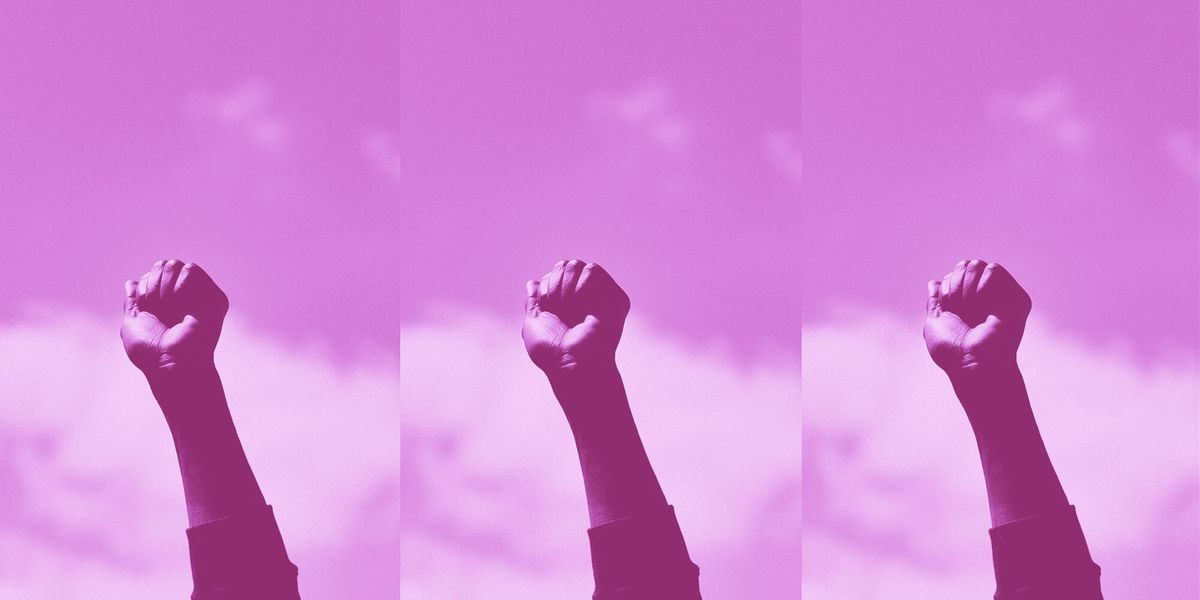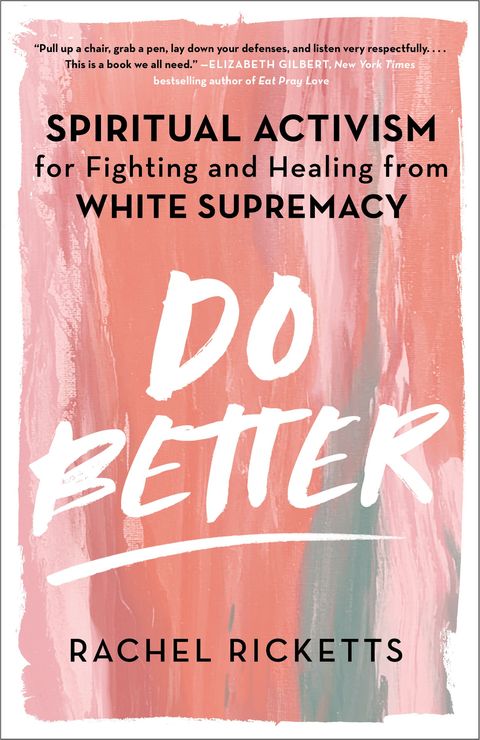In 2020, I found myself overcome by grief and despair that felt new not in its existence, but in its potency. The heartache borne from thirty-six years of racial, ancestral and familial trauma, on top of the global health pandemic, Black genocide, ongoing anti-Black police brutality, and expectations that simply because I am a racial justice educator, I have no right to protect myself from ongoing racial violence, became too much for my system to bear. Too overwhelming. Too…everything. Had it not been for my connection to Spirit and the support of other Black women and femmes, I’m not sure I would have survived.
I had the privilege of getting a hold on my situational depression before it caused me or others grave harm, but I wonder how many other Black women and femmes have died, and continue to die, as a result of the tremendous trauma that misogynoir inflicts on us and our families. If I got to this point—someone with financial security, healthcare, a partner, decades of therapy and spiritual healing, a law degree and training in racial justice—what is happening to my fellow Black women and femmes with less privilege? Women like Erica Garner, who died of a heart attack at 27 after fighting for justice for her father, Eric Garner, who was murdered on video by NYPD officers. Or Kalief Browder’s mom, Venida Browder, who also died of a heart attack after Kalief’s death by suicide, following three violent years of abuse at Riker’s prison for a crime he didn’t commit. And activists aren’t alone. I know of several Black women and femmes who were hospitalized from stress-related issues last year or are struggling with physical and mental health ailments from chronic stress.
The oppressive systems we live and work under have created a burnout epidemic, and this is all the worse for Black women and femmes who have a long legacy of exhaustion at the hands of white supremacist heteropatriarchy. As Tiana Clark shared in her 2019 article “This Is What Black Burnout Feels Like,” “No matter the movement or era, being burned out has been the steady state of [B]lack people in [America] for hundreds of years.” So, imagine the impact when, on top of the daily strife of enduring systems of misogynoir, you are also forced to weather an unprecedented and entirely mishandled health pandemic that is statistically more likely to murder you and your loved ones—that is, if a racist cop doesn’t kill you first. Not to mention that when our Black friends and family fall ill or get shot, Black women and femmes, as the pillars of our community, are the ones required to care for them and seek justice from white supremacist medical and judicial institutions.
We are exhausted, not only from navigating these current events, but the constant, daily anti-Blackness and misogyny inflicted on us by all non-Black folx and all men and masculine folx. From the expectation that we will and should work ourselves to the bone, if not the grave, in order to save the country, and the world, from itself. Without credit or support. If we dare stand up for ourselves, we’re demonized as angry, entitled, or simply killed. Not just in 2020 or 2021, but for decades.
Black women and femmes not only endure this harm, but carry the collective forward in spite of it, just as our ancestors have for centuries. Without Black women and femmes, Trumplethinskin would still be President. Without the tireless work of Stacey Abrams, Deborah Scott, Felicia Davis and other Southern Black women, we never would’ve flipped Georgia or the senate. In the wake of George Floyd’s murder, Black women and femmes have continued to pave the way forward for our collective liberation: Breonna Taylor’s mother and sister fought to bring her justice and garner national attention. Black Lives Matter, the most impactful civil rights movement of our era, was founded by three queer Black women. And all of this builds on the work of all the Black women and femmes before us. Women like Harriet Tubman, Fannie Lou Hamer and those who made Martin Luther King Jr. a civil rights champion—including his wife Coretta Scott King, his mother Alberta King, and his spiritual advisor Mahalia Jackson, all of whom are often erased and forgotten, like so many Black women and femmes before them.
So, where do we get care? As a queer Black woman living in a white supremacist world, the traumas I endure and the impacts on my health are never-ending. I suffer from anxiety and adrenal burnout from being forced to live in a near-constant state of hyper-vigilance. My stress hormones have been shot to hell, and it’s hard to rest or digest because my body has been in fight or flight for decades. I suffer from situational depression from constantly battling white supremacist systems, including witnessing Black folx murdered without repercussion for jogging, sleeping, buying candy or simply trying to breathe.
All of this leads not only to burnout, but death. Black American women are 7.5 years biologically “older” than white women because our telomeres (which control aging and key biological functions) are shrinking as a result of excessive chronic stress factors. This is especially poignant as we process a year that tried to—or quite literally did—kill Black women and femmes every step of the way. Even while simply laying in our own beds, as was the case for Breonna Taylor. Her killers were never brought to justice. In fact, the only charge against them had nothing to do with her murder, but for firing shots into her wall. Yes, society cares so little about Black women and femmes that a wall gets more protection than we do. Disgusting. And totally status quo.
We need a real reckoning regarding the toll this takes on Black women and femmes. In 1962, Malcolm X proclaimed “The most disrespected person in America is the [B]lack woman. The most unprotected person in America is the [B]lack woman. The most neglected person in America is the [B]lack woman.” Today, this rings true not only in America but around the world, as much—if not more, than 59 years prior. Unless and until systems of white supremacist heteropatriarchy and anti-Blackness are dismantled, the future won’t be any different.
This content is created and maintained by a third party, and imported onto this page to help users provide their email addresses. You may be able to find more information about this and similar content at piano.io

